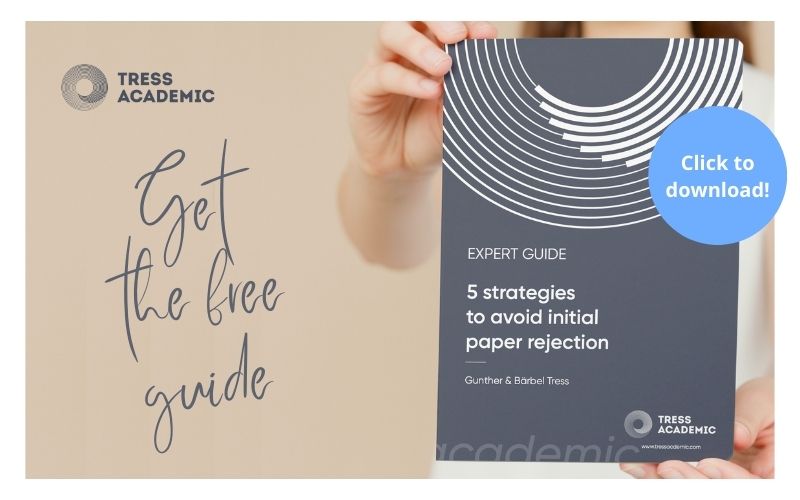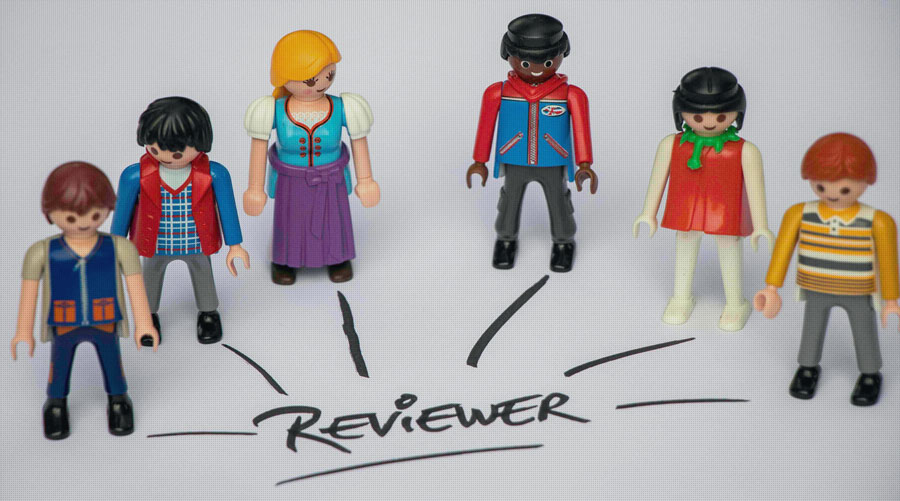More and more journals give authors the possibility to suggest potential reviewers for their paper. Should you use this opportunity and come up with reviewers? We suggest: ABSOLUTELY! But, be careful to follow the rules we outline here for you. You don’t want to compromise the quality check of your paper! To assist you, we created a checklist “Suggesting reviewers for my paper” to help you identify the most suitable reviewers.
It happens regularly in our writing courses “Understanding peer-reviewed publishing” and “How to publish in peer-reviewed journals” that a participant talks about her/his experience submitting their first paper to a peer-reviewed journal. During this process, she/he is then suddenly requested by the journal to suggest reviewers for the paper. Given that this is their first experience with paper publishing, we usually get questions like:
- Why does the journal ask me to suggest reviewers?
- Does the journal not have their own reviewers?
- Is it a sign of a poor-quality journal if they ask me to suggest reviewers?
- Wouldn’t it be unethical and unprofessional if I suggest my own reviewers?
These are very good questions and it is fair to ask them! We wrote this blog post for all of you who have similar questions or are faced with suggesting reviewers for their paper. We’ll tell you why journals ask you to suggest reviewers, when they do this, how many reviewers you have to suggest and, most of all, which rules you should consider when suggesting peer-reviewers.
I. Why do journals ask you for reviewers?
Finding reviewers is a daily task in the editorial office of a journal, one that is daunting and time-consuming. To handle all the papers that journals receive, they need many, many reviewers. However, good reviewers are a precious resource and hard to find.
Of course, journals have their own databases with a pool of good and regular reviewers. The journal editors regularly approach them when looking for reviewers for a paper. But in the day-to-day life of the editorial office, the journal needs far more reviewers than they have readily available.
Don’t forget, papers are typically reviewed by more than one reviewer and the journals want to make sure that the reviewer’s expertise matches up with the paper topic. Given the breadth of topics within a single field (think for instance of how many different topics a journal like Nature covers per issue), journals are constantly on the lookout for new reviewers to lend their experience and proficiency in the subject. The journals have a constant deficit of reviewers for the number of papers they receive.
So, one way to bring in (new) reviewers is to ask the authors to suggest researchers that they would consider suitable to review their papers. It is very likely that you will also be asked to come up with reviewer suggestions, since the journals are always on the lookout to enlarge the reviewer pool.
II. Do you have to suggest reviewers?
Most journals offer authors the chance to suggest reviewers. But, you don’t HAVE to come up with suggestions if you don’t want to or feel unable to do so. A few journals have it as a requirement in the submission rules; then you have to come up with suggestions. You can discover this by reading the journal’s author guidelines.
III. Should you suggest reviewers?
We think: ABSOLUTELY! Why?
1) You will help the journal tremendously if you come up with the names of suitable people. This can even help to speed up the review process, which benefits everyone, but especially you.
2) It gives you a possibility to suggest reviewers who you think would be most qualified to judge your paper, improving its quality. So you help the journal as well as yourself.
IV. When do you have to suggest reviewers?
The request from the journal typically comes during the submission process. When you fill in the details of your paper on the journal’s online submission tool, suddenly there appears the possibility to suggest names and addresses of reviewers. So, it would be good if you already thought about potential reviewers before submitting. Otherwise, you are delaying your own submission process.
V. How many reviewers to suggest?
Any suggestion you make is welcome. Most papers are reviewed by 2-3 reviewers, but to have the 2-3 reviewers available, more potential reviewers have to be contacted because not all invited reviewers will respond or will be available to review the paper. Therefore, journals ask you for 3-6 suggestions. Then they still have a choice whom they eventually invite.

VI. Will the journal invite all the reviewers you suggest?
Most likely not! It is difficult to predict how many potential reviewers the editorial office has to contact to get the necessary number of reviewers for your paper. You will not know if and how many reviewers from your suggestions will be invited to review your paper. Depending on the availability of reviewers, the journal may not even take a single reviewer from your list. Your suggestions, however, are an important backup list for them.
VII. How do you find suitable reviewers?
Option 1: You may know a few peers that you heard at conferences or who have published in the same field. These are people you could consider suggesting.
Option 2: Check a few journal and paper databases and search for other authors who have published in the same field. This is, by the way, also what journal editors do when they can’t find any suitable reviewers in their internal databases.

VIII. 5 rules to consider when you suggest reviewers
1. Look for people who have published papers in the same field as your submitted paper!
You want a reviewer to have sound knowledge on your paper topic and he/she should know how journals work. Therefore, suggest other researchers who have done and published research in the same field.
2. Look for excellence!
Don’t be afraid of suggesting experts in your field as reviewers. You want somebody with great expertise in your field to judge your paper and give you fair, but also critical comments. Our experience is that successful researchers, who have published themselves, are usually fair reviewers. They might give you better comments than less-experienced colleagues. Therefore, don’t be afraid of suggesting some ‘big names’.
3. Avoid colleagues, friends or project partners!
The journal wants to have an independent and unbiased review of your paper. It is not a good idea to suggest people who know you and your work too well. They might not be able to provide an impartial perspective and the journal will not choose them.
4. Suggest international colleagues!
Peer-reviewed journals are read all around the globe and the editors will try to look for reviewers that represent an international audience. Try to avoid suggesting reviewers only from your home country, and instead make sure they come from different countries and continents.
5. You don’t need to know or contact the reviewers!
Don’t worry if you feel like you don’t know any of the researchers that you suggested in person. It
IX. Conclusion
When you are asked to suggest reviewers for your paper, don’t panic. It’s a very common request. It does not mean that the journal does not look for reviewers themselves or that they will unquestioningly take your reviewer suggestions. It simply means that you can also make an effort to support the journal in evaluating your manuscript. If possible, look for potential reviewers early on, so you are prepared when the submission form asks for them.
To help you identify suitable reviewers who fulfil the requirements of journals, follow the rules described above and use our handy checklist “Suggesting reviewers for my paper” to get a quick overview on the best reviewers to suggest.
If you want more help with writing a great journal paper, join Paper Writing Academy.
Relevant resources:
- Checklist “Suggest reviewers for my paper”
- Smart Academics Blog #9: What reviewers of your paper first look at
- Smart Academics Blog #13: Writing journal papers: Pros and cons
- Smart Academics Blog #32: How NOT to react when you receive review reports
- Course “Understanding peer-reviewed publishing”
- Course “How to publish in peer-reviewed journals”
More information:
Do you want to write a journal paper?
If so, please sign up to receive our free guides.
© 2019 Tress Academic
#WritingPapers, #JournalPaper, #PeerReview, #SuggestReviewers
